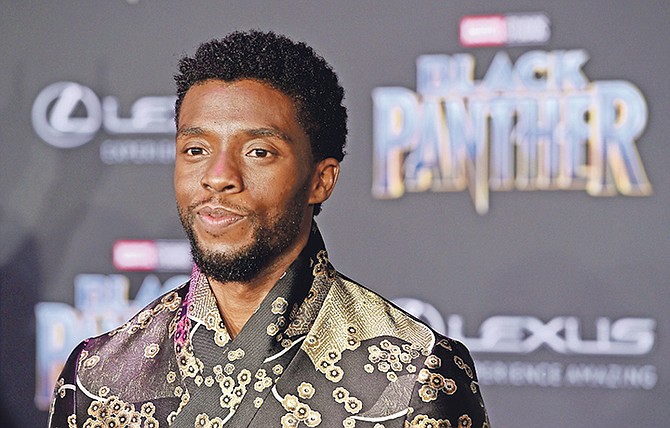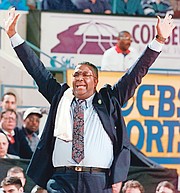With CHARLIE HARPER
Twelve years ago, America elected its first black President. But while most of the country felt good about this and celebrated what seemed to be an important turning point in the country’s often-tortured relationship between its black and white (and “brown” and “yellow” and “red”) citizens, other issues mostly dominated the news.
Even in that seminal, pivotal, magical 2008 moment, it didn’t seem like every single thing was about race.
Now, however, goaded by a President who appears determined to represent only nativist intolerance in an increasingly desperate re-election bid, it does actually seem like almost every single political, economic, social or even sports event has a racial aspect and that each such event must somehow be examined through a racial lens.
There’s no question that there was a lot of dry racial tinder in the fabric of American society, and that the callous execution by city police officers of George Floyd at the end of May in Minneapolis ignited a conflagration that was long building and, in many minds, overdue.
There’s also no question that economic inequality in American society often describes a fault line that separates black and white citizens in particular. Nor is there much lingering doubt that Trump is more an effect in his policy of racial division than a cause. America has some racial issues to resolve.
But still. There are other issues the US faces in this critical election year. How about the deteriorating condition of its roads, bridges and commercial waterways? How about its public health posture and policies? How about the state of a public education system that seems to be limiting rather than enhancing the possibilities for primary and secondary students? How about the nation’s legendary scientific innovation that could potentially stimulate so much new growth and lead to employment opportunities for new graduates? Climate change, anyone?
There’s a much longer list of America’s ills that is not substantially defined by its racial component. And yet, it appears the media and the public have lost sight of that list. Cities seem to be burning on national TV every night. Police are still shooting black men. Violent protesters are still provoking conflicts that continue to breathe life into Trump’s flagging hope to scare America into choosing him again.
All this will initially make it harder for the next President and Congress to focus on the nation’s other priorities.
There is one undeniable positive of this increasing focus on race, however. That is the much broader acceptance of the basic principle that Black Lives do Matter.
Thus, when congressional giants Elijah Cummings and John Lewis passed away, their funerals and eulogies were given front-page treatment. This was not always the case.
And when actor Chadwick Boseman passed away last week of a well-concealed cancer at age 43, he received the kind of star treatment previously mostly reserved for white movie celebrities. And especially since he portrayed such diverse and brilliant figures as baseball’s Jackie Robinson and music’s James Brown, Boseman in death reminds all Americans of those transcendent figures who changed their nation’s society.
Boseman also played the Black Panther, the first black superhero fully sanctioned by the Hollywood studio machine that traditionally glorifies white ones.
The 2018 movie “Black Panther” absolutely took the US and the world by storm. It grossed over one billion dollars. Most Americans below retirement age who saw it were dazzled. That Boseman handled his business, including his fatal illness, with dignity only magnified his influence, which is likely to grow over the years.
Now, yet another black titan has died. This man would almost certainly have been celebrated in the media under any circumstances. This black life mattered. A lot.
John Thompson II was 78 when he passed earlier this week. “Big John” Thompson was the first black coach to win a national collegiate basketball title, at a smallish Catholic school that would never have dreamed of such a thing, not in 100 years, without him. He elevated an athletic conference from a little regional league to national power. And all the while, Big John never let anyone forget that he was black, proud of it and would defiantly and loudly resist any attempt to put him or his team down for it.
When Big John took over as the head men’s basketball coach at Georgetown University in Washington DC in 1972, even committed college hoops fans had neither heard of this local high school coach nor associated Georgetown with any particular kind of athletic excellence except in track and field.
That futility would soon change. In his third season, 1974–75, Thompson led the Hoyas to the NCAA tournament for the first time in 32 years. They would make 19 more trips under Thompson. When Hall of Famer Patrick Ewing played there in the mid-1980s, Georgetown was arguably the best basketball programme in America.
The Hoyas won the national championship in 1984, and could have won two others. They lost one national title game by one point - when North Carolina freshman Michael Jordan made the winning shot. They lost another championship game by two points to a Villanova team that made a historic, phenomenal 79 percent of its shots.
In addition to transforming his college programme, Hall of Fame coach Thompson also made sure his Georgetown players got their degree. Over 90 percent of his players reportedly did so.
He also put Georgetown University on the map. Before Thompson’s arrival, the school was just another of many largely Eastern, private parochial colleges with no football programme and inconsistent basketball records.
Led by Big John, a bunch of these schools were able to band together, form the still-formidable Big East Conference, play their post-season tournaments at Madison Square Garden in New York, and enjoy lucrative TV deals.
Overall, applications to the school have surged ever since Thompson arrived to lead the way to national prominence.
Incidentally, Thompson the player was for many years the back-up centre on pro basketball’s greatest dynasty, the Boston Celtics of the 1950s and 1960s. The man ahead of him on the roster was every expert’s all-time NBA centre, Bill Russell.
Broken promises as we enter election countdown
Two of President Trump’s most-frequently cited accomplishments are his development and stewardship of the “greatest economy the world has ever known” and his faithful allegiance to his campaign promises.
How’s that working out? Well, he did preside over an economy that featured low unemployment, low home mortgage interest rates, better than average job creation, disproportionate tax cuts and spectacular gains in the big stock markets.
Whether the COVID-19 pandemic simply hastened an inevitable economic adjustment or torpedoed Trump’s whole glorious economy is hard to determine at this point. But things aren’t very good now in the US, and they aren’t very good in The Bahamas, and those two facts are of course intimately related.
We must all hope the American economy gets back on track and stays on track - and soon. US economic growth under Trump peaked in 2018 at 3 percent. This was followed last year by a fairly pedestrian 2.2 percent. This year? What do you think? Not good so far.
As for campaign promises, Trump has tried to build his southern wall along the Mexican border. He has illegally shifted appropriated funds in an effort to circumvent Congress to do this. But the wall is not complete, and contrary to his campaign promise, the Mexican government still hasn’t paid a dime for his wall.
The wall is typical of some other unrealistic or even undesirable promises. But perhaps the most appalling is Trump’s boast that he would eliminate the US national debt during his two terms in office. Under Trump before the coronavirus, the American national debt actually rose by $3.1 trillion from 2016 through 2019, in part because the 2017 Trump tax cuts slashed revenue coming into the Treasury.
So far this year, the US national debt has increased by another $2.5 trillion, due to high unemployment, further cuts in government revenue and trillions in new stimulus spending. The national debt has expanded more under Trump than under any post-Second World War President.
A key question for most voters in any election is “Are you better off now than before this President took office?” As things stand now, Trump has to be concerned about the answer.






Comments
Use the comment form below to begin a discussion about this content.
Sign in to comment
OpenID